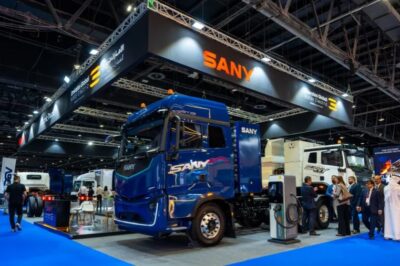Volkswagen to develop system-on-chips in China
The new SoC will serve as the core computing platform for next-generation Volkswagen Group vehicles in China. Designed for high performance and energy efficiency, the chip will process large volumes of sensor data in real time to enhance decision-making and safety in complex driving conditions.
The SoC, delivering between 500 and 700 trillion operations per second (TOPS) of computing power, is designed to meet China’s complex road and traffic environments. By leveraging Horizon Robotics’ hardware and software expertise alongside CARIAD’s system integration capabilities, the project aims to provide Volkswagen with a high-performance, energy-efficient and cost-effective ADAS and AD platform tailored to the local market.
The Group presented its first automatic driving system based on such a SOC at the Auto Shanghai in April this year. It is said to offer high-precision driving functions up to Level 2++ that are fully focused on safety and pave the way for further development to Level 3 and higher. Level 2 offers so-called semi-automated driving aids in the automated driving spectrum (from L1 to L5). In the case of 2++, this applies to both motorway and urban traffic scenarios. The leap to level 3 (‘highly automated driving’) is that only then can drivers temporarily turn away from driving tasks and traffic.
Localised innovation under ‘In China, For China’ strategy
Volkswagen announced that it would invest €2.4 billion (partly in Horizon Robotics and partly in the JV) and hold a 60 per cent stake in the joint venture when Carizon was founded at the end of 2023. Partner Horizon Robotics is a technology company based in Beijing with a focus on ADAS software and hardware solutions. In terms of hardware, the company competes with top dog Nvidia.
The German carmaker is thus trying to catch up with its Chinese competitors, as the market for electric cars in China is now so competitive that ADAS is increasingly becoming a decisive sales argument. According to Volkswagen, the first vehicles equipped with Carizon’s ADAS solution based on the CEA architecture are expected to reach the market from 2026, first with SoCs sourced from other suppliers. The self-developed SoC “is expected to be delivered within the next three to five years,” Volkswagen writes.
“As a global technology-driven company, the Volkswagen Group continues to strengthen its innovation foundation in key future technologies,” said Oliver Blume, Chairman of the Board of Management of Volkswagen Group. “By designing and developing system-on-a-chip independently in China, we are mastering key technologies for future intelligent mobility, which will further consolidate the Group’s long-term innovation capabilities.”
The SoC development forms part of the Group’s “In China, For China” strategy, which expands local R&D for core technologies such as advanced driver assistance systems and autonomous driving. Volkswagen plans to introduce more than 20 electrified models in China by 2027 and around 30 pure-electric vehicles by 2030.
“We are accelerating the implementation of our ‘In China, For China’ strategy, moving from localised production to localised R&D of core technologies shaping the future of mobility,” added Ralf Brandstätter, Member of the Board of Management of Volkswagen Group and CEO of Volkswagen Group China. “The launch of our self-developed system-on-a-chip project marks another key step in our journey of technological innovation.”
Peter Bosch, CEO of Cariad, described the development as “a crucial step forward in our intelligent driving strategy”, adding that it will “further optimise the performance of advanced driver assistance systems through this chip, bringing a more intelligent, reliable, and accessible travel experience to Chinese consumers.”





0 Comments